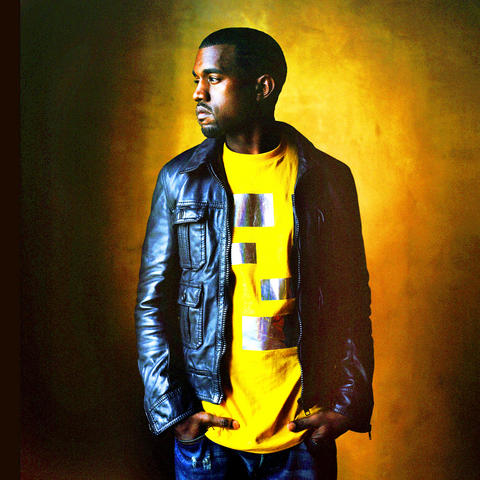Amy Winehouse, the British soul singer whose continued troubles with substance abuse have turned her into a tabloid regular, drew six Grammy nominations, including nods in the four premier categories, as the contenders for the 50th annual awards ceremony were announced here last week.
Winehouse, who scored a hit with her modern twist on soul music but has suffered repeated setbacks, including a drug seizure and cancellations of her tour, received nominations for album of the year, for Back to Black as well as for record and song of the year for the self-referential hit single, Rehab, about her refusal to enter treatment. This 24-year-old singer, whose well-publicized problems raised questions about how Grammy voters would view her, will also be in contention for best new artist when the awards are handed out Feb. 10 at the Staples Center in Los Angeles and broadcast on CBS.
Though Winehouse was the only performer to appear in all four of the most prestigious categories, she fell short of drawing the most nominations. That distinction went to the rap star Kanye West, who led the field with eight nominations, including his third for album of the year for the latest CD in his college-themed trilogy, Graduation. West's nominations also included those for best rap album and two of the five slots in the best rap song field, Good Life and Can't Tell Me Nothing.

PHOTO: NY TIMES NEWS
The biggest surprise may have been the relatively low profile of Bruce Springsteen, whose new album, Magic, with the E Street Band, had been praised by critics as a return to his classic rock style. Springsteen did draw four nominations, but none in the marquee categories. Magic had been seen as a favorite for the album of the year category, which Springsteen has never won.
Instead the album of the year field included surprise entries from recordings far removed from the pop mainstream, including the country singer Vince Gill's These Days, and the jazz composer Herbie Hancock's River: the Joni Letters. In addition to Winehouse and West, the competition will include the new album, Echoes, Patience & Grace, from a previous Grammy favorite, the Foo Fighters. Nominees for song of the year included Before He Cheats, recorded by Carrie Underwood, Winehouse's Rehab, Rihanna's hit Umbrella, Corinne Bailey Rae's Like a Star, and the hit song Hey There Delilah by the Plain White T's.
The contenders for best new artist - four female solo performers and a female-fronted band - yielded some unexpected names, including the R&B singer Ledisi and the pop-punk act Paramore. Also nominated were the Canadian singer-songwriter Feist, Winehouse and the teenage country star Taylor Swift. (Not all the nominees were exactly new: Paramore garnered fame this year with its second album; this was Feist's third solo work.)
The nominations came as the event's organizer, the National Academy of Recordings Arts and Sciences, is aiming to add weight to the ceremony, which over the years has come under fire for hewing too closely to the music industry's commercial priorities. Grammy organizers already have undertaken an effort to create a historic feel for the event, including the broadcast of a two-hour special on the CBS network last week, My Night at the Grammys, spotlighting past performances, and the creation of a seven-CD series collecting Grammy-winning songs from the major genre fields.

April 28 to May 4 During the Japanese colonial era, a city’s “first” high school typically served Japanese students, while Taiwanese attended the “second” high school. Only in Taichung was this reversed. That’s because when Taichung First High School opened its doors on May 1, 1915 to serve Taiwanese students who were previously barred from secondary education, it was the only high school in town. Former principal Hideo Azukisawa threatened to quit when the government in 1922 attempted to transfer the “first” designation to a new local high school for Japanese students, leading to this unusual situation. Prior to the Taichung First

The Ministry of Education last month proposed a nationwide ban on mobile devices in schools, aiming to curb concerns over student phone addiction. Under the revised regulation, which will take effect in August, teachers and schools will be required to collect mobile devices — including phones, laptops and wearables devices — for safekeeping during school hours, unless they are being used for educational purposes. For Chang Fong-ching (張鳳琴), the ban will have a positive impact. “It’s a good move,” says the professor in the department of

On April 17, Chinese Nationalist Party (KMT) Chairman Eric Chu (朱立倫) launched a bold campaign to revive and revitalize the KMT base by calling for an impromptu rally at the Taipei prosecutor’s offices to protest recent arrests of KMT recall campaigners over allegations of forgery and fraud involving signatures of dead voters. The protest had no time to apply for permits and was illegal, but that played into the sense of opposition grievance at alleged weaponization of the judiciary by the Democratic Progressive Party (DPP) to “annihilate” the opposition parties. Blamed for faltering recall campaigns and faced with a KMT chair

Article 2 of the Additional Articles of the Constitution of the Republic of China (中華民國憲法增修條文) stipulates that upon a vote of no confidence in the premier, the president can dissolve the legislature within 10 days. If the legislature is dissolved, a new legislative election must be held within 60 days, and the legislators’ terms will then be reckoned from that election. Two weeks ago Taipei Mayor Chiang Wan-an (蔣萬安) of the Chinese Nationalist Party (KMT) proposed that the legislature hold a vote of no confidence in the premier and dare the president to dissolve the legislature. The legislature is currently controlled